
Noun Pronoun Agreement YouTube
Pronouns. A pronoun is used in place of a noun. Different forms are used to show person, number, gender, and case. There are personal, interrogative, indefinite, demonstrative, and reflexive pronouns. A personal pronoun refers to one or more individuals or things. Personal pronouns may be in the nominative, objective or possessive case.

Noun Pronoun Agreement Grammar Tutorial YouTube
Basic Noun-Pronoun Agreement. Nouns and their pronouns. Number (singular/one or plural/more than one) Gender (male, female, neutral) For example, the following sentences do not make sense since the pronouns do not agree with their nouns in number (1st sentence) or gender (2nd sentence): Elvis sightings have occurred more abundantly in the last.

Noun Pronoun Agreement Lecture 4 20 2020 LGLA 1307 YouTube
Grammar Pronouns Using Pronouns Clearly Using Pronouns Clearly Because a pronoun REFERS to a noun or TAKES THE PLACE OF that noun, you have to use the correct pronoun so that your reader clearly understands which noun your pronoun is referring to. Therefore, pronouns should: 1. Agree in number

PPT PronounNoun Agreement PowerPoint Presentation, free download ID2012462
Noun-Pronoun Agreement Basics. The purpose of a pronoun is to take the place or refer back to a noun in a sentence. Just like subjects and verbs, nouns and the pronouns that refer to them should agree in number. Note that APA recommends use of the singular "they."
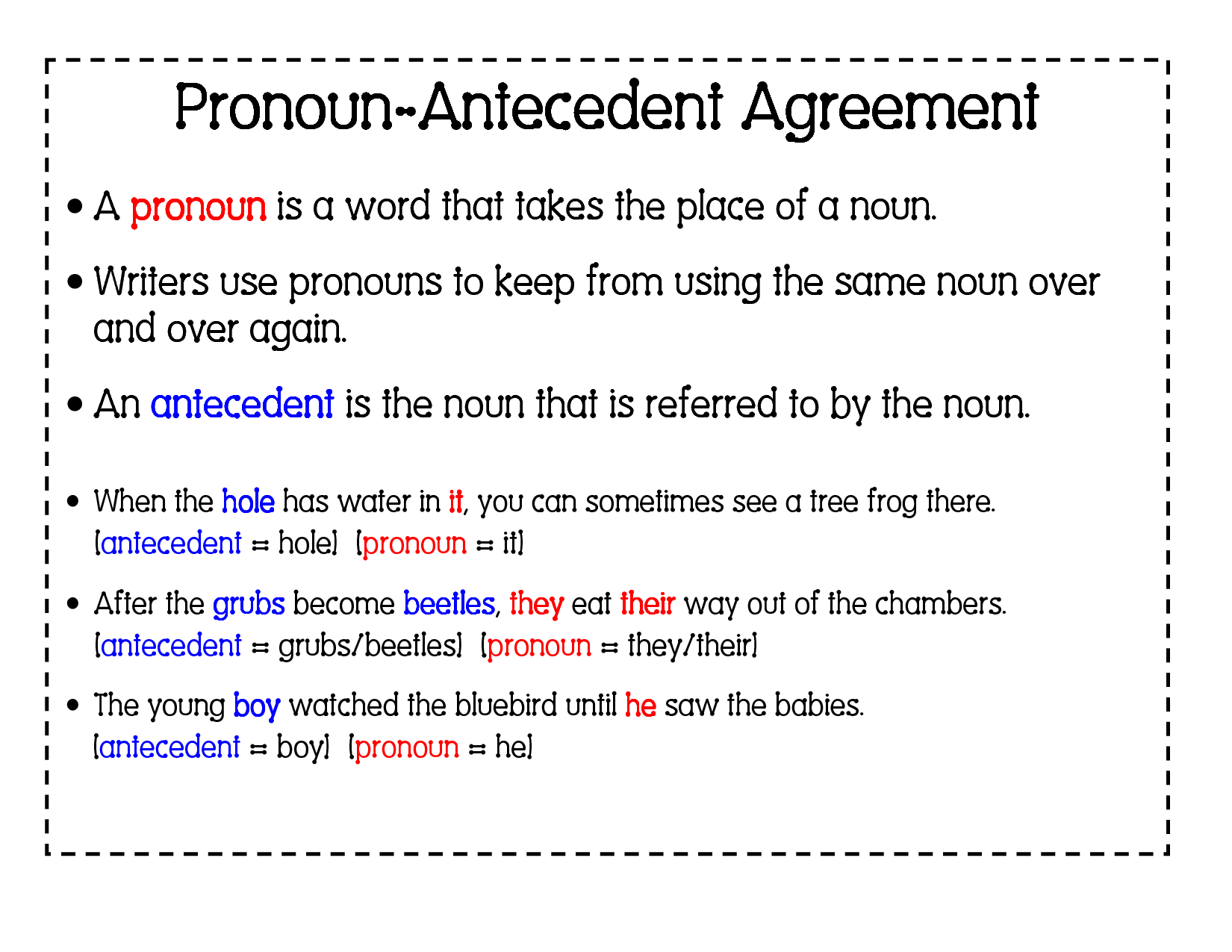
Pronoun Antecedent Agreement Worksheet
Pronoun Agreement. A pronoun must agree with its antecedent in number (singular or plural) and gender (masculine or feminine). In this sentence, Galen is the antecedent of his, he'd, and his. Galen, after saying goodbye to his family, discovered he'd lost his wallet. In the following sentence, Garcias is the antecedent of they, even though it.
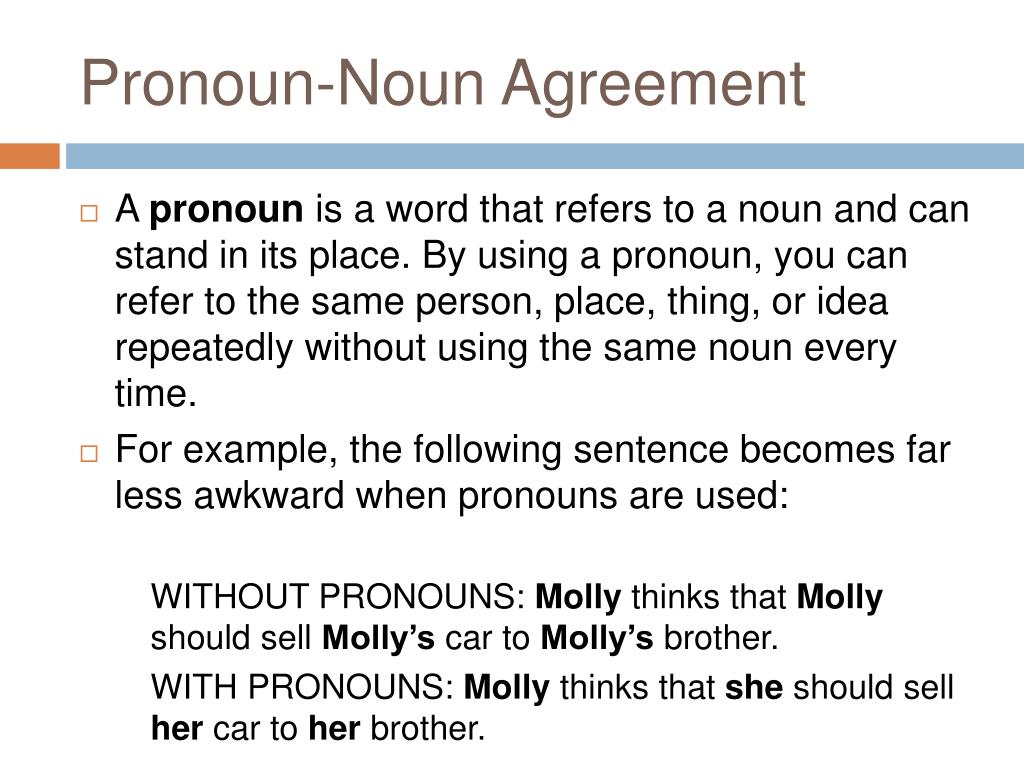
PPT PronounNoun Agreement PowerPoint Presentation, free download ID2012462
Revised on February 22, 2023. Pronoun-antecedent agreement means choosing a pronoun that matches its antecedent (the earlier noun or noun phrase it refers to) in terms of number, person, and gender. Agreement errors can cause confusion or just make your writing read poorly.

Noun Pronoun Agreement Part I YouTube
Pronouns and their antecedents have to match in number, gender, and person. For this, those, that, and these, the antecedent can come immediately after the pronoun. Helpful ACT English tips: Anytime a pronoun is underlined, the first step is to determine the antecedent —be sure to check the surrounding sentences as well.
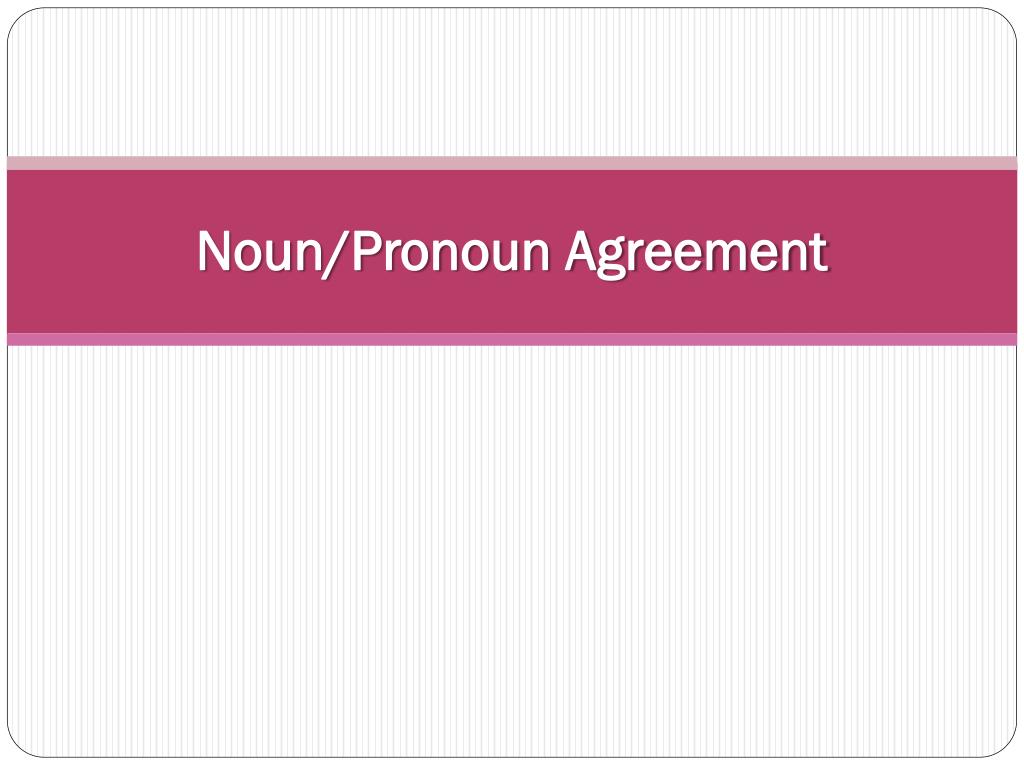
PPT Noun/Pronoun Agreement PowerPoint Presentation, free download ID2302752
Pronouns have to agree in number with the words they refer to (called their antecedents). That is, a pronoun must be singular when its antecedent is singular, and plural when its antecedent is plural. But when the antecedent is a singular collective noun, it can be difficult to decide whether the pronoun should be singular or plural.
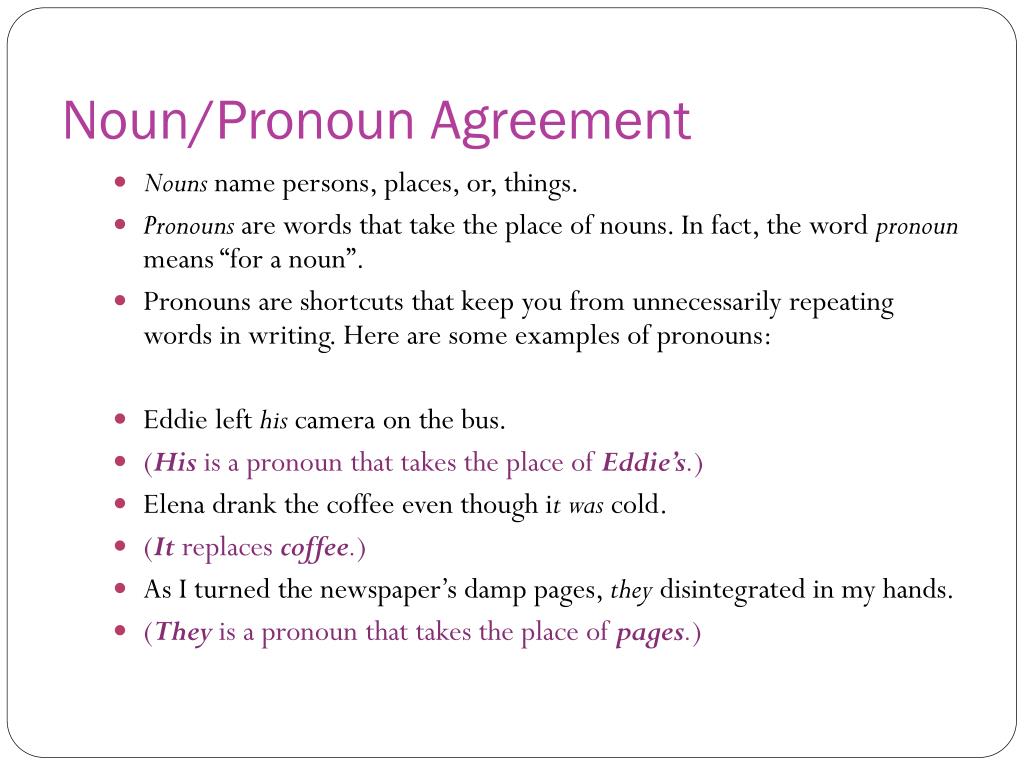
PPT Noun/Pronoun Agreement PowerPoint Presentation, free download ID2302752
Pronoun agreement errors can occur when the pronoun you are using to "stand in" for a noun does not agree with that noun in number, place, or gender. Clara needs to pick up her book. Using the singular pronoun her does agree with Clara. In the above sentence, Clara is the noun and her is the pronoun that agrees with Clara.
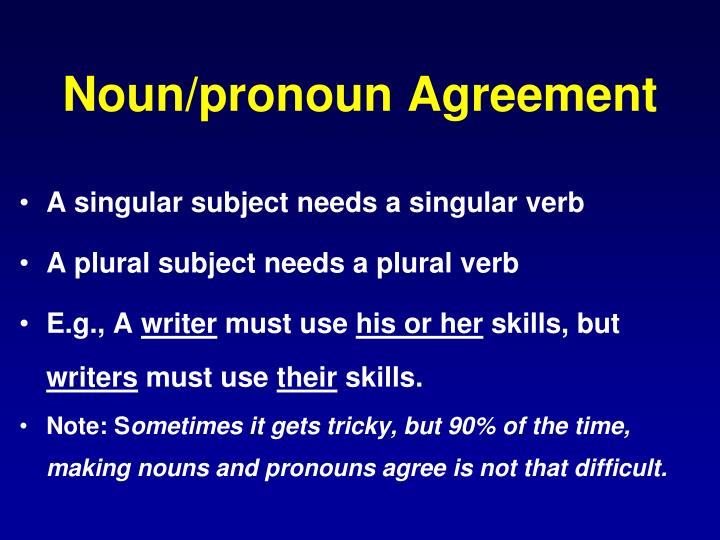
PPT How to Write Right ASMC PDI 2010 PowerPoint Presentation ID1172032
Traditionally, one of the basic principles of pronoun agreement (also called noun-pronoun agreement or pronoun-antecedent agreement) is that a singular pronoun refers to a singular noun while a plural pronoun refers to a plural noun. As discussed below, this usage becomes more complicated when the pronoun is indefinite .

Noun and Pronoun Agreement YouTube
Defining Noun-Pronoun Agreement. In most cases, a pronoun refers back to a noun that appeared previously in the sentence or conversation. This noun is called the antecedent of the pronoun, and the noun and pronoun must agree as to whether they are singular or plural. For example: Amelia was going to buy her mother a bracelet.

BBI2421_3 Noun Pronoun Agreement Pronoun Grammatical Number
Although the pronoun "they" is only a plural pronoun in some style guides, APA encourages writers to use "they" as a singular or plural pronoun with the specific intention of embracing gender diversity. According to the APA Style blog, "when transgender and gender nonconforming people (including agender, genderqueer, and other communities.
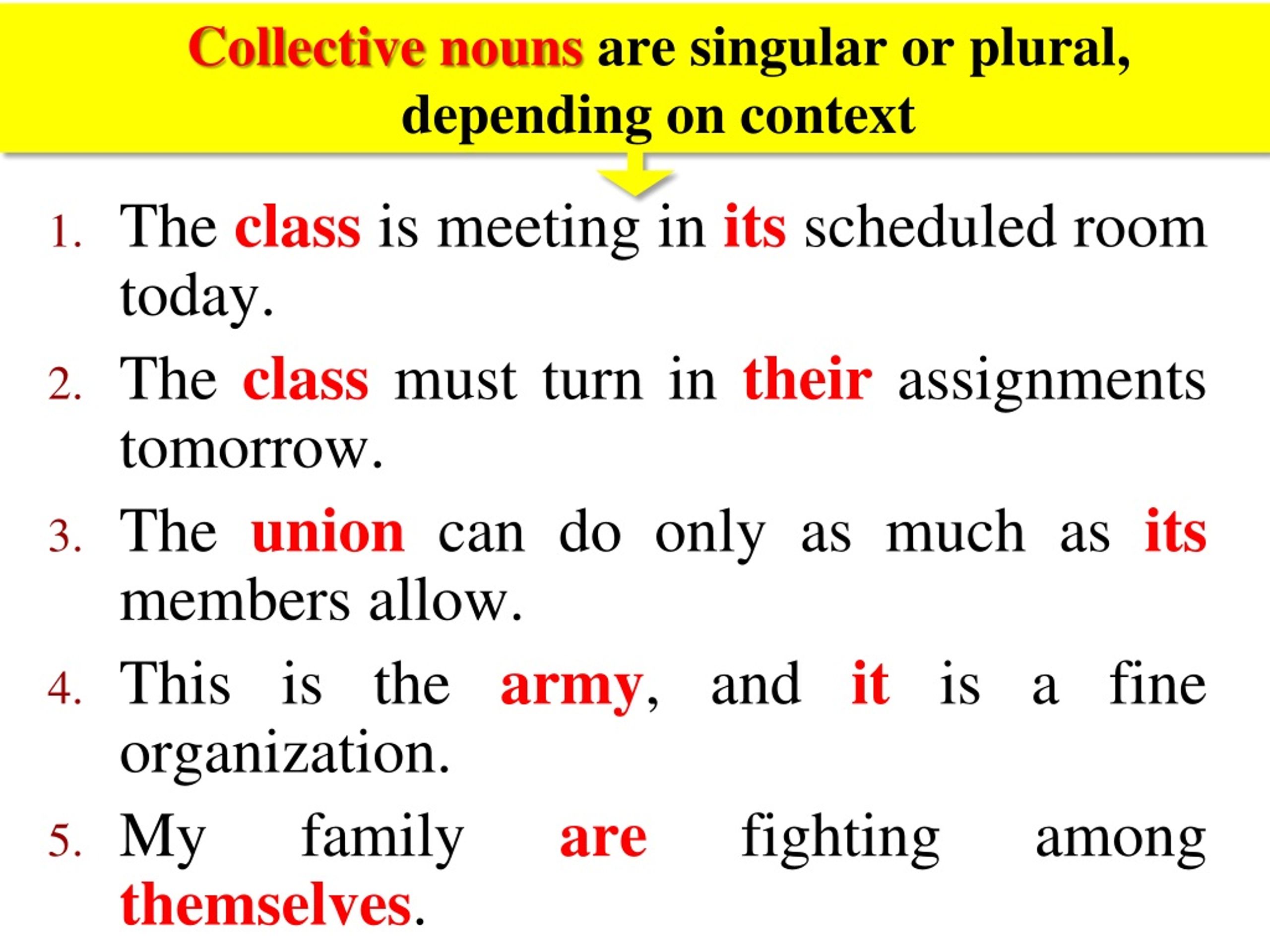
PPT NounPronoun Agreement PowerPoint Presentation, free download ID9218899
Pronoun agreement means that a pronoun and its antecedent (the noun a pronoun replaces) agree in number and gender. If the antecedent is singular, the pronoun must be singular. If the antecedent refers to a woman, the pronoun should also refer to a woman — and so on. Amelia never thought she would get the job.
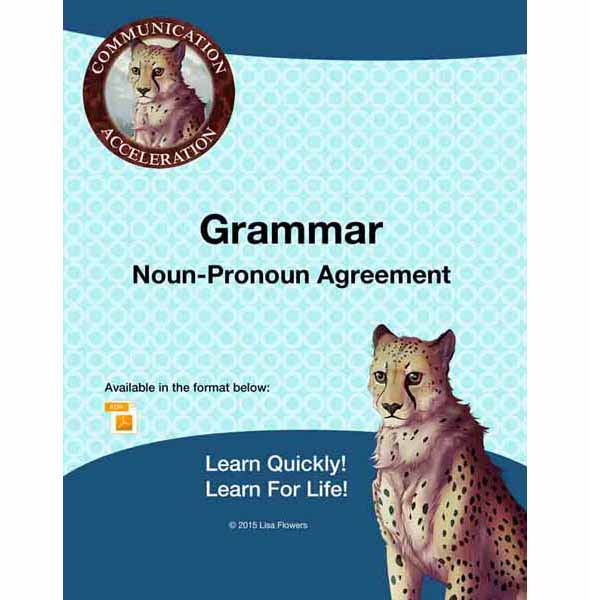
Grammar NounPronoun Agreement
A pronoun is a word that stands in for a noun. Like nouns, pronouns refer to people, things, concepts, or places. Most sentences contain at least one noun or pronoun. A pronoun can serve as the subject or object in a sentence, and it will usually refer back (or sometimes forward) to an antecedent—the noun that the pronoun stands in for.
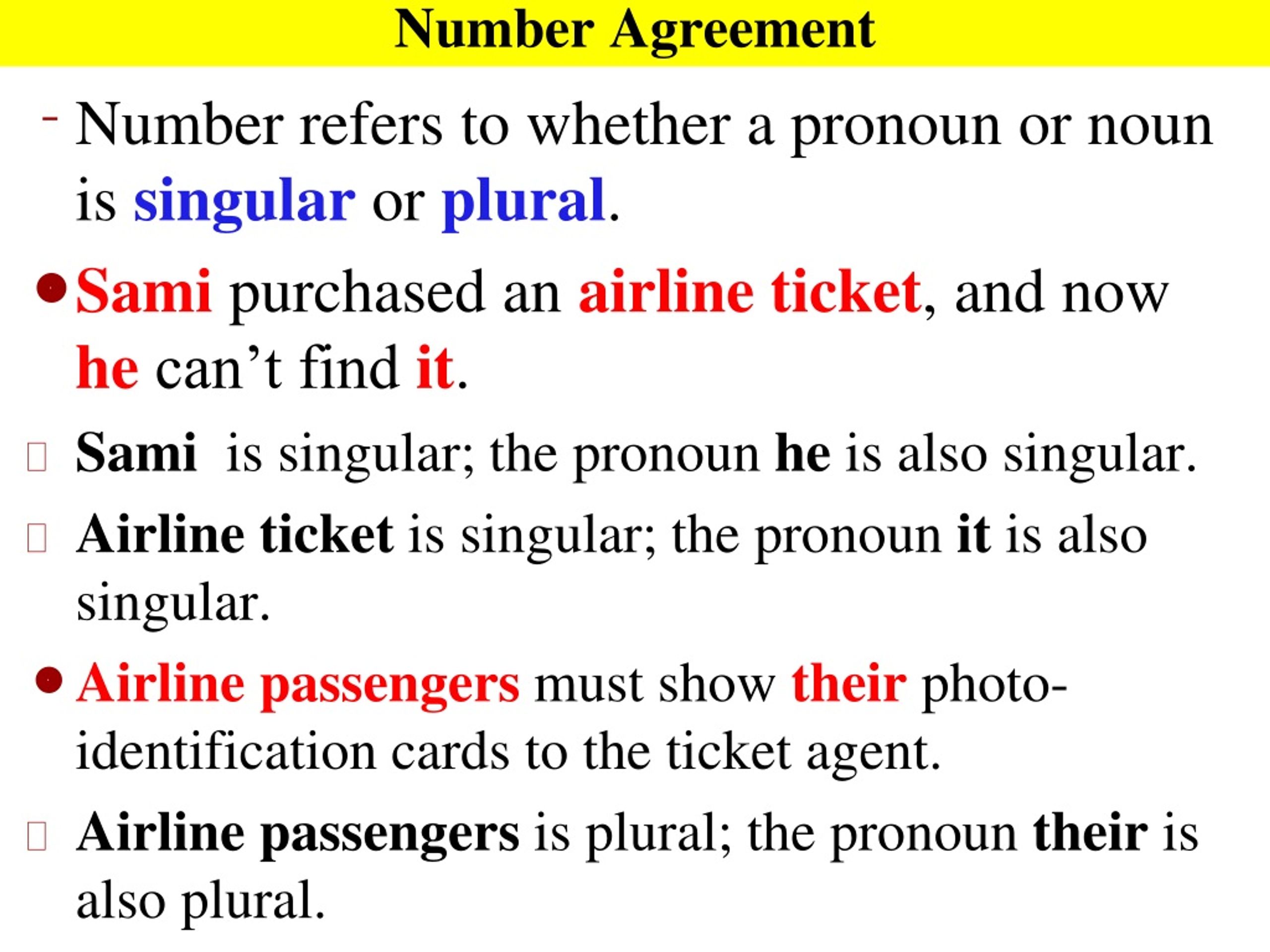
PPT NounPronoun Agreement PowerPoint Presentation, free download ID9218899
Definition: Ante (not anti) means before. The root cedere means to go. The antecedent goes before the pronoun. It is the noun that the pronoun replaces. A pronoun must match, or agree, with its antecedent in number, person, and gender. Hint: You can be sure a noun is the antecedent if you can use that noun in place of the pronoun.
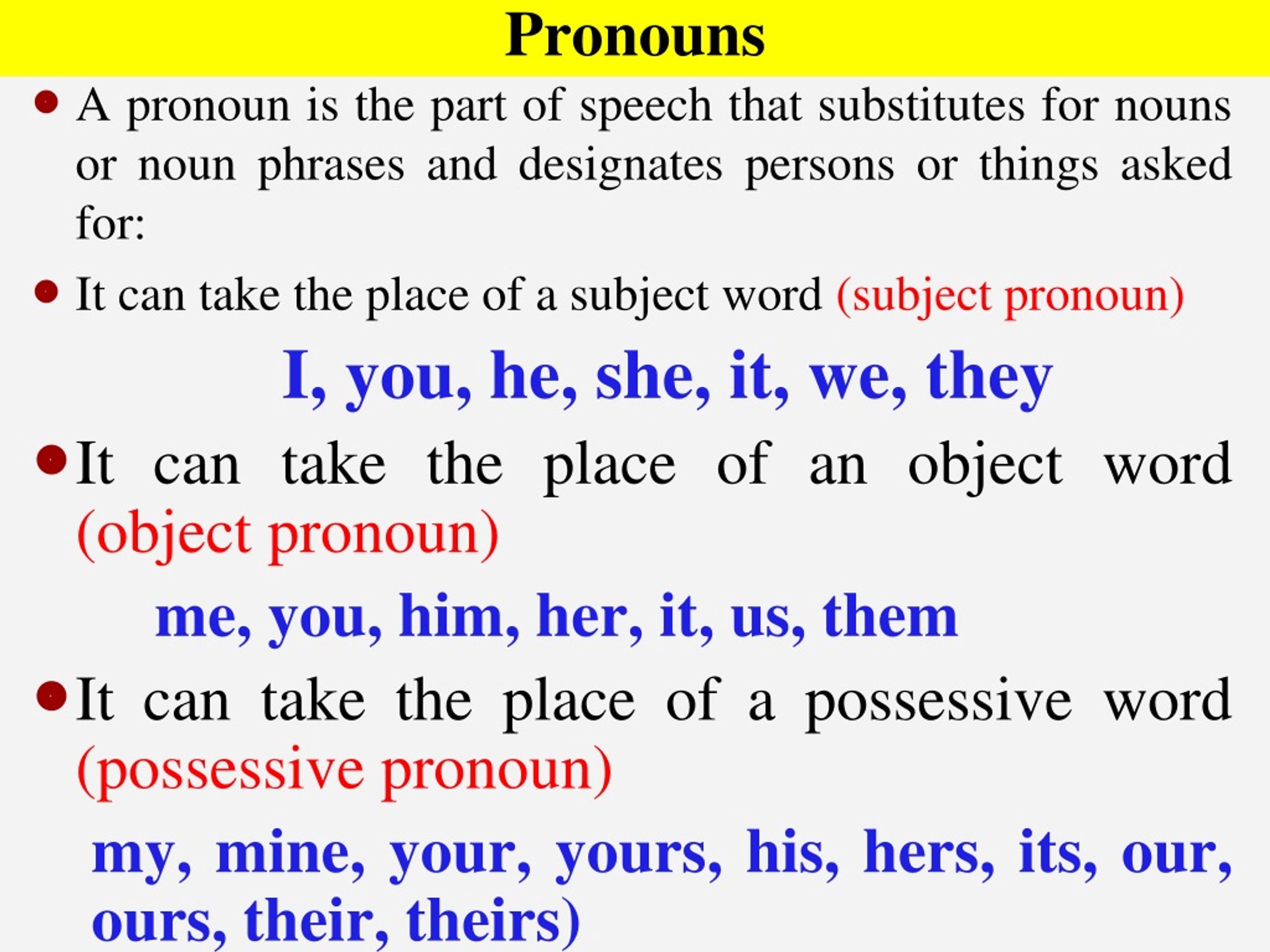
PPT NounPronoun Agreement PowerPoint Presentation, free download ID9218899
Writing Resources Exercise 4: Noun-Pronoun Agreement Choose the appropriate word in the sentences. Question 1 Mr. Banks and Ms. Cutler are selling (his/her/their) stock in the construction company. Question 1: "his" Question 1: "her" Question 1: "their" Question 2